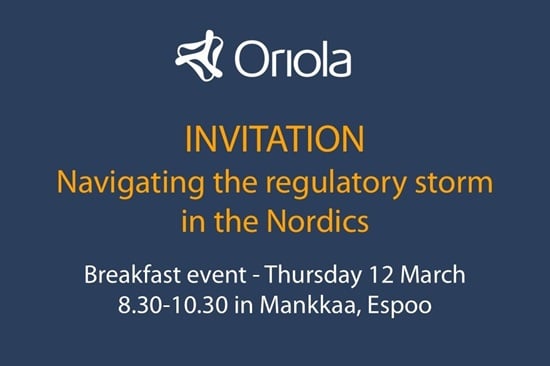Pharmacies to display their expertise
14.4.2016
When a prescription medicine becomes an OTC product, it is essential to ensure that customers use it correctly and safely.
Proprietary pharmacist Reija Yrjölä at the Koivu pharmacy in Tampere, Finland, is brimming over with enthusiasm. The pharmacy has just received two new prescription free (OTC) pharmaceuticals that require additional advice to be given to customers purchasing them. These two products are the painkiller Pronaxen and the migraine treatment Sumatriptan Teva.
These medicines can be supplied to customers once the pharmacist or assistant pharmacist has verified that the medicine is suitable for the person. These medicines were previously only available on a doctor’s prescription.
But now, says Yrjölä, this is an opportunity for pharmacies to showcase their expertise.
“Our professional skills include making sure that a medicine requiring additional advice to be given is suitable for the person in question and that he or she is able to use it correctly. It is important that we do this task well,” she emphasises.
When a prescription medicine becomes available without prescription, it is the pharmacy’s job to provide reliable and expert advice to customers. This is part of the professional role of pharmacies – such advice is not available from grocery stores, for example.
Yrjölä would welcome more OTC products to add to the range offered by pharmacies. Many ordinary, recurring ailments and conditions are a considerable strain on primary health care. Doctors’ time can be saved for more important tasks when a pharmacy professional dispenses advice on whether the ailment can be treated with a prescription free product or whether the person should see a doctor.
However, the biggest beneficiary when a prescription medicine becomes an OTC product is the customer, who is able to obtain the medicine more easily and quickly.
“The customer gets quick relief for the complaint, which might otherwise, if prolonged, lead to sickness absences,” explains Yrjölä.
Ball now with the pharmaceutical sector
The Finnish Medicines Agency (Fimea) published its OTC medicines programme in January 2015. The head of Fimea’s Marketing Authorisations unit, Marjo-Riitta Helle, sums up the programme’s key message:
“Prescription free medicines can even lead to a significant improvement in the availability of medical care. Safe use of these medicines is the key aim, however, and the pharmaceutical sector as a whole should focus on developing these products together.”
The ball is now firmly with the players in the pharmaceutical sector, notes Helle. Fimea’s task is to act as coordinator for the required cooperation.
“Pharmacies have already begun to develop their professional role in ensuring safe medication. Development of the information given about medicines is also under way,” she says.
Helle also notes that Finland has no specific need for increasing the number of OTC pharmaceuticals. In a European comparison the number of such products in Finland is a good average, and is greater than in the other Nordic countries.
Nevertheless, Helle believes that by being ready to give additional advice on products we can improve the availability of care for certain recurring ailments. By dispensing additional advice, pharmacies can be sure that these medicines are used correctly and safely in self-care, too.
“When a medicine becomes available free of prescription, the patient’s own responsibility for his or her care increases substantially. That’s why responsible support from a professional pharmacy is needed, and the pharmaceutical companies are also expected to provide improved information on the medicines,” she explains.
An OTC medicine is still a medicine, notes Helle. It should therefore be treated with the same caution and mindset as prescription medicines.
Sales growth in OTC pharmaceuticals
Sales of prescription free pharmaceuticals have grown by almost 50 per cent since the year 2000. Wholesale sales in 2000 came to about EUR 155 million, and in 2013 they reached approximately EUR 228 million.
A population study carried out by Fimea in 2013 revealed that half of all survey respondents had used prescription free medicines during the previous week, and as many as one in three was using such medicines daily.
Source: National OTC medicines programme


